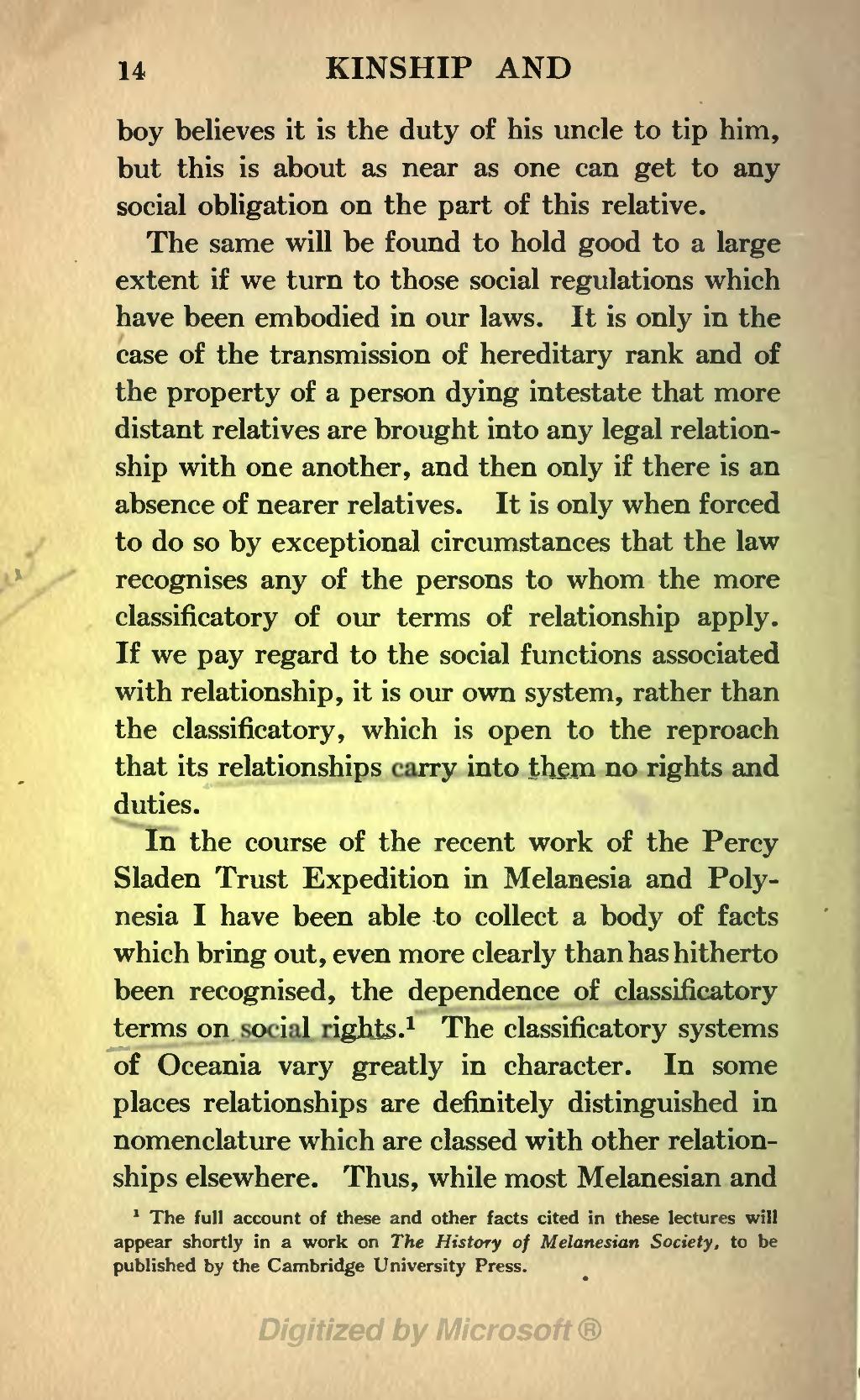boy believes it is the duty of his uncle to tip him, but this is about as near as one can get to any social obligation on the part of this relative.
The same will be found to hold good to a large extent if we turn to those social regulations which have been embodied in our laws. It is only in the case of the transmission of hereditary rank and of the property of a person dying intestate that more distant relatives are brought into any legal relationship with one another, and then only if there is an absence of nearer relatives. It is only when forced to do so by exceptional circumstances that the law recognises any of the persons to whom the more classificatory of our terms of relationship apply. If we pay regard to the social functions associated with relationship, it is our own system, rather than the classificatory, which is open to the reproach that its relationships carry into them no rights and duties.
In the course of the recent work of the Percy Sladen Trust Expedition in Melanesia and Polynesia I have been able to collect a body of facts which bring out, even more clearly than has hitherto been recognised, the dependence of classificatory terms on social rights.[1] The classificatory systems of Oceania vary greatly in character. In some places relationships are definitely distinguished in nomenclature which are classed with other relationships elsewhere. Thus, while most Melanesian and
- ↑ The full account of these and other facts cited in these lectures will appear shortly in a work on The History of Melanesian Society, to be published by the Cambridge University Press.
